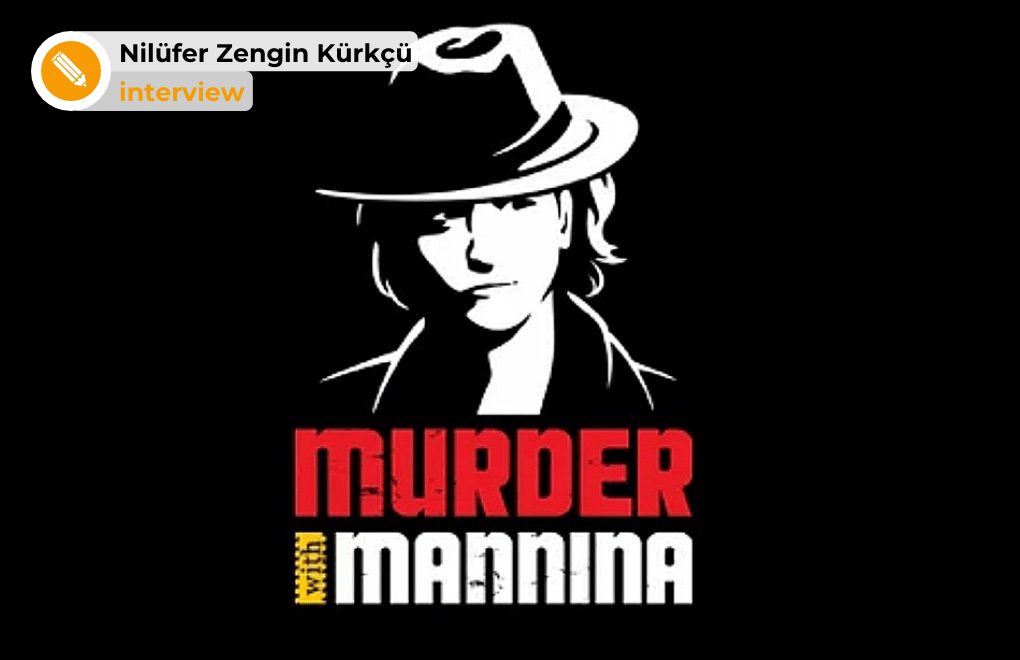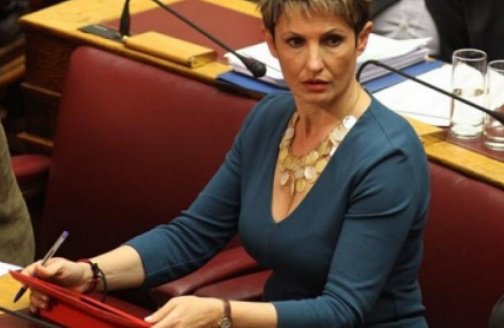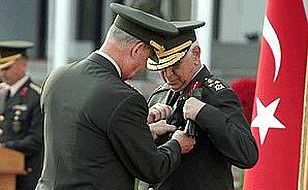A new podcast series that appeals to both crime story enthusiasts and justice seekers is on the show: Murder with Mannina.
Christine Mannina is a veteran detective retired from Indianapolis Metropolitan Police Department, but obviously not from the mindset of a detective in pursuit of unearthing crimes. The producer and co-host of the series is Collin Grillo. Two women essentially retrace former investigations conducted by Mannina in retrospective and casual conversations but they also tend to penetrate into fresh cases covered by the media. By the way, retirement provides Mannina the time and opportunity to work as a cold-case investigator.
CLICK- Murder With Mannina (Apple)
CLICK- Murder With Mannina (Spotify)
In this interview, rather more than all the national and international popularity she has gained in her professional life as an active law enforcer, I will be focusing on her skills in a new venue, on the modest, novel, and spontaneous conversations of a Podcast creator who demystifies justice as the cornerstone of an unequal world of color, class, and power.
This was the introduction I prepared before interviewing Christine Mannnina. After our conversation, I would simply say: Forget about fictional detective stories, here is a fairytale of an investigator: A calm, modest, young-retired woman, you'd call if you are a victim of the system -she is there to grasp your misfortune and spend all her experience for resolving the case instead of obscuring. You may feel good to know such people exist.
*. *. *
Why have you retired so young?
I've been doing it a long time. I started young. So I had been in law enforcement for 26 years. The state of the world right now is a little bit different in policing and I just felt like it was time to kind of get out. So I was tired and I was trying to look for a new journey and an opportunity kind of fell in my lap.
So I just took it and I think with the police work right now being so dangerous and then not necessarily getting the backing from your department. Only it isn't dangerous on the street but it's dangerous when you feel like your department is not backing the decisions that you're making. Yes, so that that was the main reason.
That's a crucial point. But you didn't quit detective work?
No, I think I unfortunately kind of detecting everything. So I'm teaching high school right now. I'm teaching criminal justice and law enforcement to high school students but I've been contacted through my podcast and through just various social media platforms to investigate cases that have not been solved. So I'm doing that on the side.
Is it a private school?
No, It's a public school.
It fits you...
It does, I like young people, I like working with people and they're interested in law enforcement. So I just go in there and try to teach them about what it's like.
Through these podcasts, you transform the technical-institutional process of a murder investigation into a public question. Do you believe this reconstruction guides the audience to comprehend what taking a life is?
Well, I hope so. I think with the podcast I go through, kind of each step in the investigation from when I arrived on the scene to the very end of the discussion or the very end of the investigation we're trying to get the listener or the viewer. However, it comes across to kind of jump inside of my brain and sees what I'm thinking and kind of hear what I'm thinking all the way up to the point of trying to get the case solved.
So I think that TV and media show a little bit show some of it, but they don't do a great job of showing exactly how it is. And that's what I'm trying to do with the podcast. So you know, I always try to do my investigation, especially when I'm talking with suspects to kind of learn the story behind the story because there always is one.
And I don't believe in the cases that I've investigated the homicide to the murders that I've investigated that, anybody woke up that morning thinking, they were going to murder somebody. So I always ask the question of, how did we get here and that tells the story of what happened. all the way up until the minute they pulled the trigger or the minute they took someone's life. That's what I'm trying to do.
What do you think about the Dexter image as a killer?
I think those TV shows are entertaining. I think that you know, they provide entertainment and I think you get snippets of things that are real life, but it's not actually how it is.
Does it justify at some point to reach a kind of justice by murdering?
Yes, they try to justify, most murderers try to justify the reason they did what they did but the media and the television shows don't do a great job in my opinion of showing how it actually is and it hinders us in our investigations when we go to trial, because people want to see what they see on TV in real-life investigations and it's just not like that. So it hurts us a lot.
In one of the episodes in the podcast series, you comment on how a murder happens in a flash, in a very very short moment. Could you take us to your voyage, the mental burden you assume in investigating the "derrière" of that horrible moment?
Well, I think you become emotionally invested when you're trying to help a family to figure out who killed their loved one. And unfortunately, in a lot of these cases, the murder happens over something stupid and it happens very quickly. Either an argument and we have such access to weapons here in the United States that so many people are carrying around guns and the actual murder happens very quickly so they can be in an argument and that's how they solve it.
So the emotional strain of going and looking at the loss of life is real, right? Because you become very invested in trying to solve it. And then these kids, these investigations take a while to solve. And then the whole process from the minute, you make an arrest to the trial is very, very long. And so I become very vested in the families, trying to get them justice, you know because that's what they want. They want someone to be held responsible for murdering their loved ones.
So, all of that toll and trying to put the puzzle pieces together is intriguing and I hate to use the word "fun", but interesting and kind of keeps me going to try to solve the puzzle because ultimately, what I want to do is to give them a little bit of peace and being able to say that I solve their crime, and the person that took their loved one away from them is now going to jail.
Families of the suspects suffer too
And so, all of those play a big role in your mental game with yourself and trying to put the puzzle together. Make sure that it sticks so that you get a conviction in court learning to deal with the families of the victim. And then, what's often not talked about a lot, is how it affects the family of the suspect because they're now dealing with the fact that he or she has murdered someone and me having to arrest them and he's going to be gone, you know, it's a loss for the suspects family as well and that's not shown very often.
And so the actual act of murder affects so many people. You've obviously got the victims and their family and friends, then you've got the suspects and their family and friends, and then the community where it happened and co-workers. And so it's a huge toll to take on and so I took it very seriously and I wanted to do my small part in trying to give some peace and justice to the family. It absolutely took a toll and that's probably why I retired young because, you know, it takes such a toll on you personally
Personally, in order to do a good job, i feel like I had to be at work all the time. And running down every single lead I could and in turn personal life, you know, goes astray and friendships go away and things to that degree. So finding that balance was hard, but I have no regrets.
The media picks which victim they're going to highlight
After Netflix, I discovered your and Colleen's podcast. I realized that your policing work and your profile as a detective is beyond what Netflix shows...
Sure. I think that we're trying to get cases out there that don't get the media attention that they deserve or certain elements of our communities are kind of forgotten. And, you know, they deserve as much an investigation as anybody else, and the media picks and chooses which ones they're going to highlight a lot. And if you notice on a lot of the shows or highlighting white suburbia a lot and there's a whole other community that doesn't get the news media that could help them solve their case.
If you look at the Gabby Patito case, the whole entire world was captured by this beautiful young woman who was murdered. Everybody was vested in it. And when I looked at it, I knew he killed her. I mean that was very obvious but people were calling in tips and people wanted to be a part of it and we have all these cold cases across the country either in the United States or in other countries where nobody even knows about, and why did the media pick her and not pick this victim and all those questions.
And I think that it's an injustice to people in general, and obviously an injustice to the families that they want. You know that they deserve someone to look at their case with no judgment and solve it. I mean, that's what we get paid for. That's what our job is to do. We don't get to pick and choose our victims, you know, once they become murdered, they become our victims, no matter where they're from or what they look like, how it happened?
The TV world had consumed the image and conceptions of the detective and unresolved murder. Do you think did an authentic image occur from all of the media coverage? How have you dealt with overcoming this established and predetermined image of the detective built through the media?
Well, I think that women aren't in this profession or not very many women that do this. So they're not portrayed at all really. But I think sometimes they do a pretty good job of it and sometimes they're quite off.
I think that the whole, you know believe we're beating them or mistreating them. I never mistreated anybody and I think that it's a difficult thing to try to capture because I think the media kind of misses a lot of the investigation.
The kind of the ins and outs of how we truly got to this place. They and I know they only have a little bit of time and they've got to get to the meat and bones of the investigation, but I think overall maybe they do OK, not great and not horrible, but just kind of OK. They hit on some things, just like the TV shows, the fictional TV shows hit on some things but they miss a lot.
The same thing with the portrayal of detectives and I think when I look at it myself, they don't portray the detectives as really really caring because, you know, you don't just when you leave the office. You don't leave that. I mean, it's not like I go home and I don't think about it. You know, I'm thinking about it all the time. It becomes a part of your everyday life because you're amassed and I think that's mixed. You know, that's kind of messed up as far as the divorce rate and the drinking and all of these bad habits a little bit.
Absolutely what you know people cope with stress differently and obviously, your personal life is affected because you're out all the time. And if you're at a birthday party and you get a tip, you got to go, right? So I think for the most part it's OK. I don't love it. I don't hate it. I'm kind of in the middle of it a little bit, they hit on some good things and then they don't.
I think out of all of the television shows NYPD Blue back in the 90s did it the best out of them all. And I'm alone "Order SVU" fan and stuff and they get on it, but I still think NYPD Blue hit it, hit it on the head as far as really portraying kind of what it's like in the personal lives, because it's hard to. When you're going through your own problems in your life, to go to work and have to deal with everybody else's, you know, and so trying to balance that is difficult.
At the end of the day, 99 percent of detectives and police officers are out here doing the job, really, really care, but the one percent that screwed up for us, gives us the image that we can't be trusted or that we're out for a different reason than what we really took the job for. And so that part's horrible.
I think that the media does not show how many times officers do the right thing or save lives or change the life of a young person. You never see that. But you will see the one officer that's done something bad over and over and over you know, and I've said to the lot of media person come out and ride with me for eight hours. Because you're a whole idea of what you think we do will be blown out of the water and they have yet to really capture that.
Cold-cases require commitment
How is it going with being a cold case investigator?
Cases are exactly that cold. But I think that the desire to try to warm up again still burns deep inside of me, you know, to get them. Because I do think that most cases are solvable, but you have to turn over that one rock that hasn't been turned over yet, and you've got to find that. And that takes effort and that takes time and that takes commitment. And as detectives, we're so busy that cold cases go cold very quickly because we've got another case we've got to work.
And so there are not very many cold-case detectives around the world, where all they do is cold cases. And they're hard right there cold and they're hard to get them, you know, kind of moving again, and it takes a lot of time and effort. So, you know, I'm intrigued by it. I think, if nothing else I can, I can look at a case, and at least move it forward with just a little bit, little bit of work and, you know, a bit of luck. And a little bit of work goes a long way. So we'll see, I'll let you know.
So since when do you regularly practice as a cold case detective?
Well, I think that right now I'm doing it when I can but we're also in the process of trying to pitch television series to the network so that I could do it full-time. So I'm kind of balancing teaching, and then doing my podcast and looking at cold cases.
So, I'm busy as you can imagine, but I think the ultimate goal is to try to get a network to get beyond the idea of, let's do a cold case show and get hot these cases highlighted. Not just your white suburbia, but all of these other people that deserve their, you know, their time in front of the camera, their time in front of the world, to try to get them solved.
And the ultimate goal is to be able to retire from teaching, you know, get a network to back our idea of, it's bigger than just the case. It's the communities that are affected. It's the suspect's family. It's the victim's family. I think people are intrigued by crime, and I think they want to help, and we're trying to kind of put that with the networks to do a television show where it's just me and the communities trying to solve these cases. We can get that figured out that I'd probably quit teaching and do that.
As a cold-case investigator now, do you have access to necessary sources as sufficient as you had during your work in law enforcement?
Well, being retired it's a different ballgame because unfortunately police, we don't share well, and once you're kind of out of all of the computer programs that I can get into, it does handicap me to a degree. But what I do have is the ability to go in and build relationships with communities and victims' families and do it at that route because I think that's even more important than having the resources from the police department.
Because like I've said, and I'll say it a million times where this happened and the community that had happened, they're the ones that are going to solve this case, it's not going to be me. They're going to establish a relationship with me and trust me and then start to give me information. So it's ultimately the community it solves these cases that really the police, you know, and if I can get into these communities and talk with people and get some kind of trust and connection and put an end and put the puzzles together with information from coming from here and here and here, but I think ultimately, we can get it solved.
So what? I love every police department in the country that gives me access. Absolutely, but unfortunately, its officers and detectives are very ego and they're not great at giving information out to somebody that wants to help. So we'll see.
It's new territory for me. I still have my connections. I still know a lot of people, but going in and saying, hey, give me an opportunity to look at this cold case because it hasn't been solved. A lot of police departments are like "yeah, we're good". You know they say no so we'll see. (ANZ)








